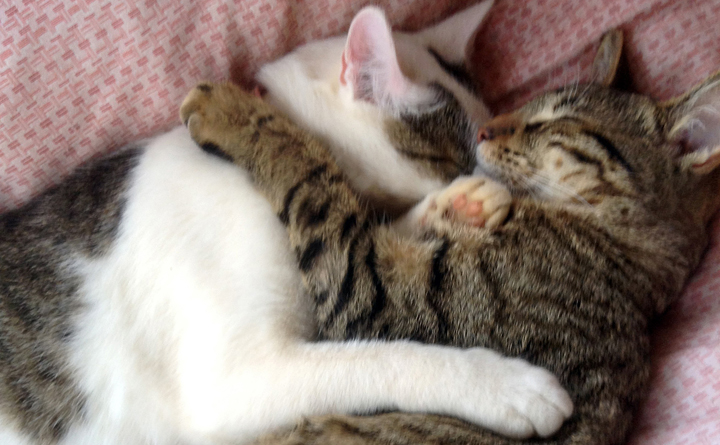
(The Hamilton Spectator – Saturday, February 10, 2018)
MUKONO, UGANDA – Today we’ll talk about touch. And the California girl.
The California girl was a beautiful girl – you can imagine her California hair and skin and eyes and all that – but she might as well have been a dog. She’d be better off as a dog. This is what she said. Then she’d get affection and meaningful touch. She longed for it that much.
So one day in her class at the University of Southern California, USC, she bared her soul and got on all fours and pretended to be a dog. And in response, in a strange moment of realness, her classmates did touch her; they stroked and petted and hugged her.
No, without touch, there’s no life. I watch the baby monkeys running around here, where I’m visiting at this Ugandan university, and, like the baby monkeys from Psych 101, I hear them say the same thing: “Me too! Hold me too! Or I’ll die!”
Zak, my dog who’s now cared for by others here, has similar thoughts. After our morning walks, he still loves his belly rubs. Then there’s the cats. Tiblets, you may recall, once spoke in this space. And Mister Bubbles, who my daughter found as a newborn in a flower pot, is the faithful cat who acts like a dog and who’s recently visited regularly in my guest room.
“Touch me,” they all say. “Me too! Me too!”
Yes, it’s the animals who can bring us closer to a healthy semblance of touch. The animals, with the breath of life breathed deep into them as it’s breathed into you and me, who can be uncomplicated in their rules of companionship and unconditional in their love.
There was once a professor at USC, the impassioned and well-traveled Leo Buscaglia, who lectured on this sort of thing, on the art of living, really. His class was called, fittingly-enough, Love 1A. It was from Buscaglia where I learned of the California girl.
The professor gave public addresses often televised. And even though I wasn’t much more than a kid, I’d watch. It’s strange to think of it after all this time. But touch, and all the fears associated with touch, is big news these days.
Even in Africa you can easily hear about the prestigious London club used to titillate some of the UK’s biggest power brokers. Or the Michigan doctor sentenced 175 years for abusing young gymnasts for decades. Or, of course, the ongoing #MeToo movement and its contentions of money, sex and power at its maligned worst, even in Canadian halls of influence.
This is touch in our time: distorted, abused, politicized. It’s one kind of touch even as there’s sex that’s hopeless or half-hearted or broken. Or criminal. Yes, the worst forms of sex (or alleged sex) that make the news is what we tend to remember, even as I remember Buscaglia once telling of a California girl who jumped off a California cliff into the ocean.
But there’s meaningful touch too. And it seems to me that in times like this, especially in times like this, this is good to also remember. No, not just good, but essential to remember. Otherwise, this Valentine’s Day, like any day, we’ll live in nothing but fear: fear of touch, fear of one another, fear of leaving bed in the morning. And this is no way to live.
During this, my visit to Uganda, I’ve actually been touched often. In this culture it happens when you simply greet someone. The entire affair is a fine art. Your hand will be taken, and held, then held more.
“Mister Thom. How are you?” you’ll be asked. “How is doctor? How are the children?” (You can never answer thoroughly enough.) Then you do the asking. Back and forth you go, asking and touching and holding hands, and holding longer, such a drawn-out exchange.
Or maybe some of us need more patience. As Africans point out, the Mzungus (that is rich foreigners) have the watch. But the Africans have the time.
And isn’t this the human condition? We long for touch like we long for air. But we have to go. So we do. We turn and we go. Sometimes running all the way to God knows where.
